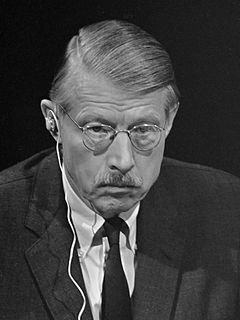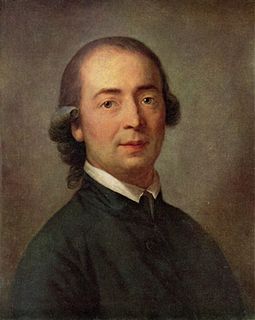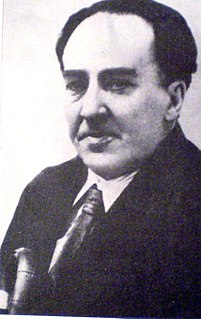A Quote by Jawaharlal Nehru
At the stroke of the midnight hour, when the world sleeps, India will awake to life and freedom. A moment comes, which comes but rarely in history, when we step out from the old to the new, when an age ends, and when the soul of a nation, long suppressed, finds utterance.
Related Quotes
What is man born for but to be a Reformer, a Remaker of what man has made? A renouncer of lies; a restorer of truth and good? Imitating that great Nature which embossoms us all, and which sleeps no moment on an old past, but every hour repairs herself, yielding us every morning a new day, with every breath a new life?
The real searcher after truth will not receive the old because it is old, or reject the new because it is new. He will not believe men because they are dead, or contradict them because they are alive. With him an utterance is worth the truth, the reason it contains, without the slightest regard to the author. He may have been a king or serf - a philosopher or servant, - but the utterance neither gains nor loses in truth or reason. Its value is absolutely independent of the fame or station of the man who gave it to the world.
I would say to my soul, O my soul, this is not the place of despair; this is not the time to despair in. As long as mine eyes can find a promise in the Bible, as long as there is a moment left me of breath or life in this world, so long will I wait or look for mercy, so long will I fight against unbelief and despair.
The first step in liquidating a people is to erase its memory. Destroy its books, its culture, its history. Then have somebody write new books, manufacture a new culture, invent a new history. Before long that nation will begin to forget what it is and what it was... The struggle of man against power is the struggle of memory against forgetting.
We are resolved to protect individual freedom of belief. This freedom must include the child as well as the parent. The freedom for which we stand is not freedom of belief as we please,... not freedom to evade responsibility, ...but freedom to be honest in speech and action, freedom to respect one's own integrity of thought and feeling, freedom to question, to investigate, to try, to understand life and the universe in which life abounds, freedom to search anywhere and everywhere to find the meaning of Being, freedom to experiment with new ways of living that seem better than the old.
Have you never observed that children will sometimes, of a sudden, give utterance to ideas which makes us wonder how they got possession of them? Which presuppose a long series of other ideas and secret self-communings? Which break forth like a full stream out of the earth, an infallible sign that the stream was not produced in a moment from a few raindrops, but had long been flowing concealed beneath the ground?
Prophetic utterance, like poetic utterance, transforms experience and moves the receiver to new attitudes. The kinds of experience--the recognitions or revelations--out of which both prophecy and poetry emerge, are such as to stir the prophet or poet to speech that may exceed their own known capacities; they are "inspired," they breathe in revelation and breathe out new words; and by so doing they transfer over to the listener or reader a parallel experience, a parallel intensity, which impels that person into new attitudes and new actions.
Aristotle said that philosophy begins in wonder. I believe it also ends in wonder. The ultimate way in which we relate to the world as something sacred is by renewing our sense of wonder. That's why I'm so opposed to the kind of miracle-mongering we find in both new-age and old-age religion. We're attracted to pseudomiracles only because we've ceased to wonder at the world, at how amazing it is.






































